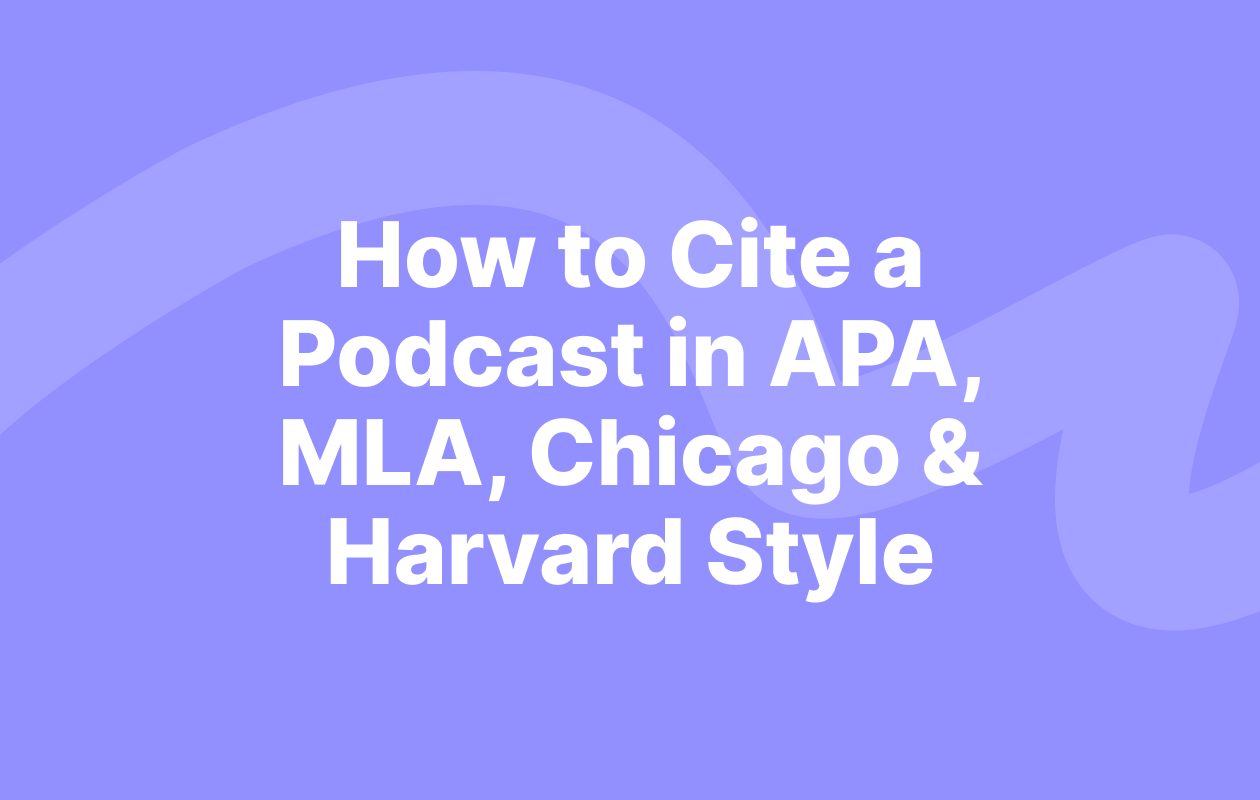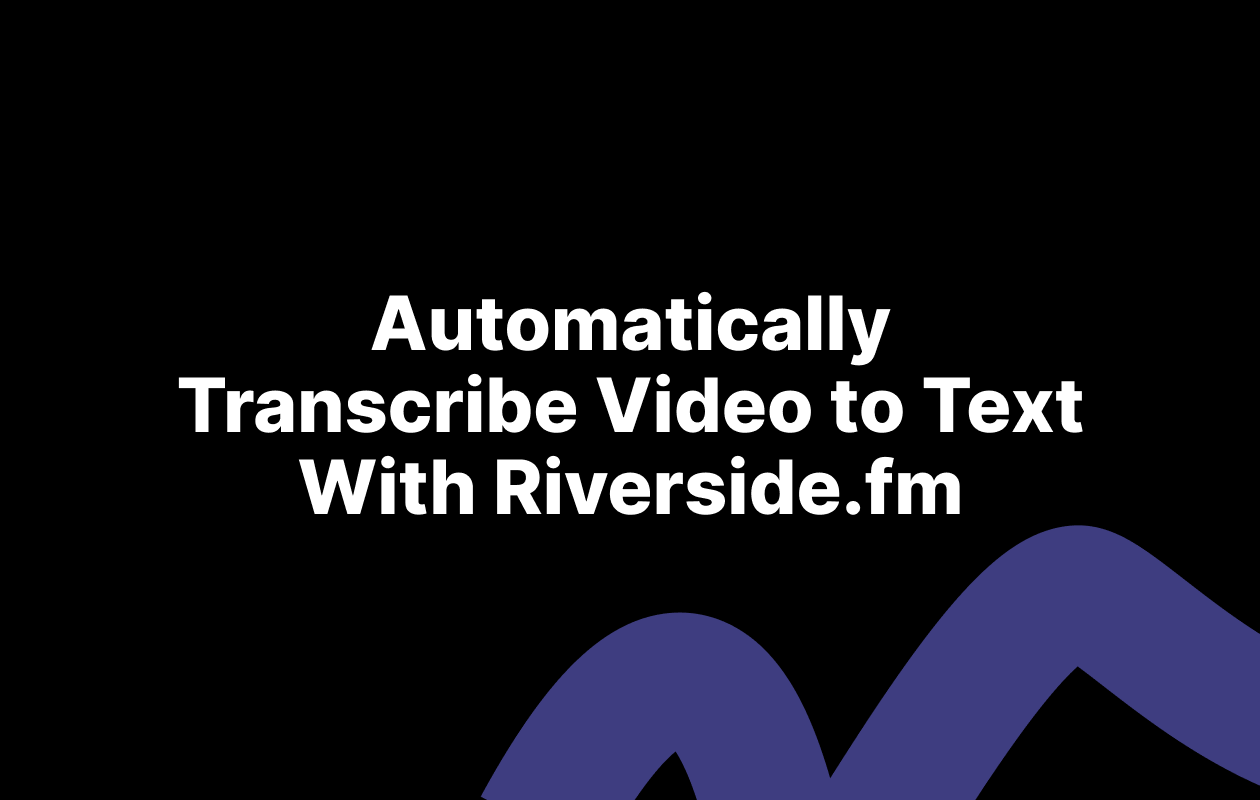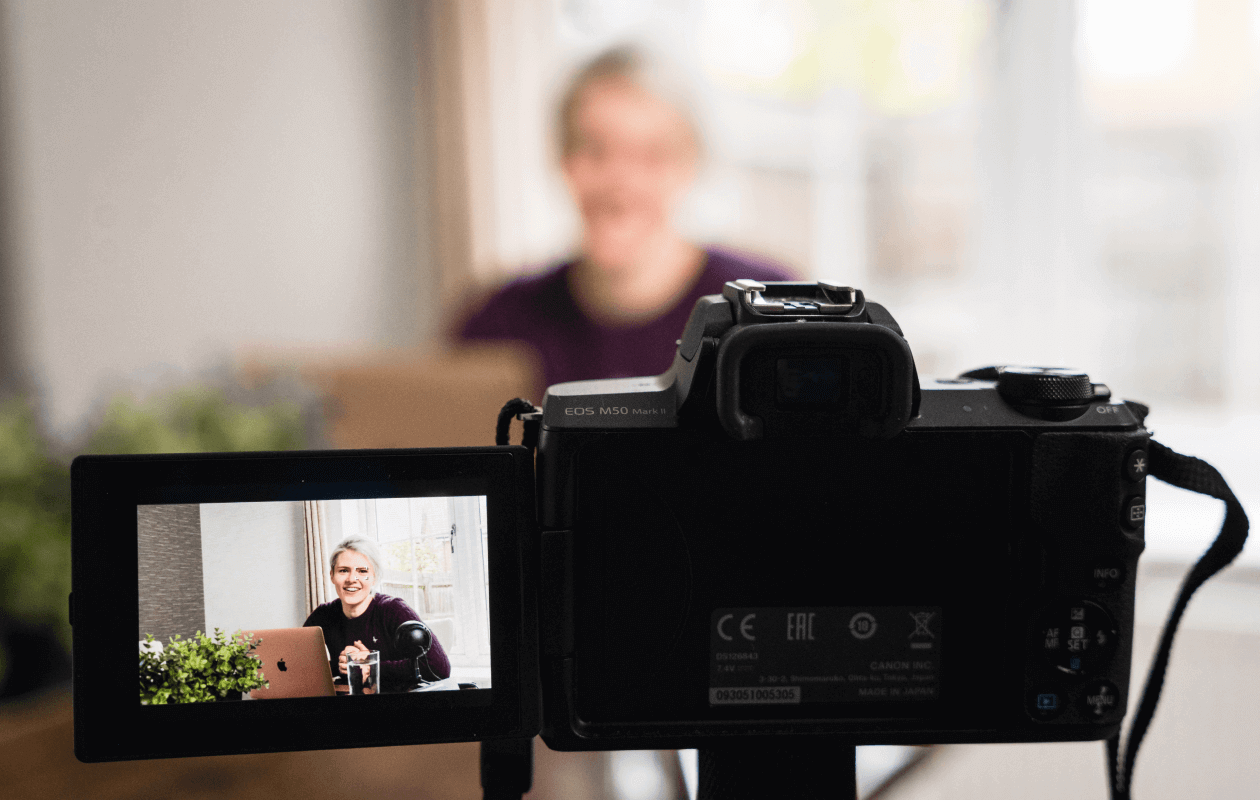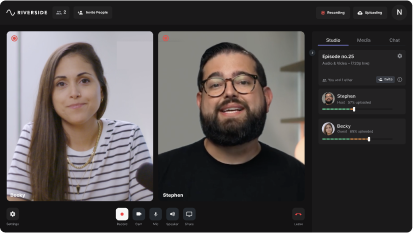Last Updated
May 26, 2023
How to Cite a Podcast in APA, MLA, Chicago & Harvard Style

Whether you’re a student, academic, or professional writer, referencing and citation can feel like the worst part of any written assignment or research paper. Although we’re all familiar with citing books and academic papers, the prospect of referencing a podcast might come as a surprise.
Yet, with the proliferation of podcasting as a medium, you may find yourself needing to cite one sooner than you thought. If you need to cite a podcast and don’t know where to start, we’ve got you covered. This guide walks you through how to cite a podcast in the major referencing styles from in-text citation, reference lists, and bibliographies. Let’s get started.
TL;DR
- You need to cite a podcast if you’re directly quoting, using ideas, or paraphrasing what was said in the show.
- How you cite a podcast depends on which referencing style you are using
- All the different styles require the following information: host’s name, date of publication, name of podcast/episode, URL
When do you need to cite a podcast/podcast episode?
Just like with any other medium, if you’re quoting a podcast host verbatim, drawing on ideas mentioned in a podcast, or you’re summarizing a podcast’s overarching theory or thoughts, then you need to credit them. This is critical to protect yourself from accusations of plagiarism.
How do you cite a podcast in an essay?
This depends on the referencing style that you are using. If you are unsure, ensure to check with your institution’s referencing guidelines since they may stipulate a specific style that they prefer. If not, it’s up to you, although some styles may be more appropriate to your area.
Pay particular attention to italicization, full stops, parentheses, and quotation marks. All of these things, while minor details are critical to correct citation.
You'll need all or some of the following information:
- The host/narrator's first and last name
- The title of the podcast episode (if you're referring to a particulate one)
- The name of the podcast series
- The date of publication
- The episode number and series number
- The URL that you accessed the podcast through
How do you cite a podcast in APA?
To cite a specific podcast episode using APA style 7th edition referencing, the citation would look like this:
Last Name, Initials. (Role). (Year, Month, Day). Episode Title (Ep no.) [Audio Podcast Episode]. In The Podcast’s Name. Production Company. Retrieved from URL.
Let’s break that down.
The name at the beginning is the ‘author’; in the case of podcasts, you will usually use the host’s name (you can also put the executive producer here instead)
The parentheses that follow contain the preceding person’s role. So if you put the host’s name, put (host).
The date refers to the day the podcast episode was first aired.
The episode title is the title of that specific episode. Remember, do not italicize this.
The episode number is the episode’s number in the series. If the podcast doesn’t number their episodes, just leave this out.
The square brackets indicate the type of podcast episode.
The podcast series’ title is in italics.
The URL is the link to the episode. Leave this out if you used an app to listen to the episode or can’t find the URL.
Take a note of what each element means. You’ll see them recurring in other citation styles, just in a slightly different order.
Worked example for a podcast episode:
Reference:
Barbaro, M. (Host). (2021, December 8). Why Ukraine Matters to Vladimir Putin [Audio Podcast]. In The Daily. The New York Times. Retrieved from https://www.nytimes.com/2021/12/08/podcasts/the-daily/putin-russian-military-ukraine.html.
To cite a whole podcast series in APA style, do the same as above with some tweaks. In this case, you can either keep the host as the author or reference the executive producers of the podcast. Instead of the date, you’ll write the range of years the series went on.
If the podcast is ongoing, end the range with ‘present.’ If the podcast only ran for a single year, just put that year:
Host’s Last Name, Initials. (Host). or Producer Last Name, Initials. (Producer). (Year range). Podcast name [Audio Podcast]. Production Company. URL.
Worked example for a podcast series
Barbaro, M. (Host). (2017 - Present). The Daily [Audio Podcast]. The New York Times. https://www.nytimes.com/column/the-daily.
How do you cite a podcast in APA in-text?
If you’re doing in-line citation for a particular episode, you can add a timestamp to indicate the specific part of the episode from which you’re quoting, as follows:
(Host’s Last Name, Year, timestamp)
Worked example:
(Barbaro, 2021, 3:24)
If you’re doing in-text citation for a podcast series, it will look like this:
(Host’s Last Name, Year Range)
Worked example:
(Barbaro, 2017 - Present)
How do you cite a video podcast in APA?
Follow the same process as above, but instead of writing [Audio Podcast], write [Video Podcast].
Do you italicize podcast titles in APA?
You italicize the podcast series’ title but not the episode title.
How do you cite a podcast MLA 8?
A podcast citation in MLA style 8th edition for a specific episode looks like this:
Reference or Bibliography using MLA:
Last Name, First Name, Role. “Episode Title.” Podcast Name, season number, episode number, Publisher/where you listened to the episode, Day Month Year (of publication), URL.
Note: if the podcast doesn’t number its seasons or episodes, just omit this section.
Worked Example:
Barbaro, Michael, host. “Why Ukraine Matters to Vladimir Putin.” The Daily, The New York Times, 8 December 2021, https://www.nytimes.com/2021/12/08/podcasts/the-daily/putin-russian-military-ukraine.html.
In-text citation for podcast episode using MLA:
(Last name, year, timestamp)
Worked example:
(Barbaro, 2021, 23:19)
Citing a whole podcast series in the bibliography using MLA looks like this:
Last name, first name, role. Podcast Name. Publisher, year range, URL.
Worked example:
Barbaro, Michael, host. The Daily. The New York Times, 2017 - Present, https://www.nytimes.com/column/the-daily.
In-text citation for a whole podcast series looks like this:
(Last name) or (“Podcast title”)
Worked example:
(Barbaro) or (“The Daily”)
Are podcasts italicized or quoted MLA?
The episode title is quoted, and the podcast show’s name is italicized in MLA.
How to cite a podcast from an app using MLA?
If you listened to the podcast using an app like Apple Music or Spotify, you could include these as follows:
Last name, First name, Role. “Episode Title.” Podcast Name, App Name app, episode number, Publisher. Day Month Year.
Worked example:
Barbaro, Michael, host. “Why Ukraine Matters to Vladimir Putin.” The Daily, Spotify app, New York Times. 8 December 2021.
How to cite a podcast in Harvard style
Here’s how to cite a specific episode using Harvard style:
Last name, Initials. (Year of Publication) “Episode Title,” Name of Podcast, Host Site/Organization/Publisher. Month day. Available at URL/App [Accessed Date].
Worked Example
Barbaro, M. (2021) “Why Ukraine Matters to Vladimir Putin,” The Daily, The New York Times. December 8. Available at https://www.nytimes.com/2021/12/08/podcasts/the-daily/putin-russian-military-ukraine.html [Accessed December 10, 2021].
And here is how to cite a podcast series in Harvard style:
Last name, First Initial. (Year of Publication) Name of Podcast. [Podcast] Host Site/Organization/Publisher. Month day. Available from: URL [Accessed Date].
Worked Example:
Barbaro, M. (2017) The Daily. [Podcast] New York Times. Available from: https://www.nytimes.com/column/the-daily [Accessed December 10, 2021]
In-text citation:
(Author Surname, Year Published)
Worked Example:
(Barbaro, 2017)
How to cite a podcast in Chicago style
If you want to cite a podcast using Chicago style, here’s how:
Footnotes Citation (because there is no in-line citation in Chicago):
First Name Last Name, “Episode Name,” Year, in Podcast Title, published/written/directed by, podcast, audio format, running time, URL.
Worked example:
Michael Barbaro, “Why Ukraine Matters to Vladimir Putin,” 2021, in The Daily, Produced by Erikc Kupke, Rachelle Bonja, and Luke Vander Ploeg, podcast, mp3, 28:35, https://www.nytimes.com/2021/12/08/podcasts/the-daily/putin-russian-military-ukraine.html.
Bibliography Reference:
Last Name, First Name. “Episode Name.” Produced/written/direct by name. Podcast name. Publication Month Day, Year. Podcast, Audio Format. Running Time. URL [Accessed Month Day, Year].
Worked example:
Barbaro, Michael. “Why Ukraine Matters to Vladimir Putin.” Produced by Erikc Kupke, Rachelle Bonja and Luke Vander Ploeg. The Daily. December 8, 2021. Podcast, Mp3. 28:35. https://www.nytimes.com/2021/12/08/podcasts/the-daily/putin-russian-military-ukraine.html [Accessed December 10, 2021].
FAQs about Podcast Citation
How do you reference a guest on a podcast?
It’s easy. Rather than putting the host’s name, write the guest’s name instead. If the referencing style asks for the person’s role, write ‘guest.’
Do you put podcast names in quotes?
This depends on the referencing style that you’re using. See above for more information and guidance.
How do you do an in-text citation for audio?
When you’re citing audio in-text, it will help to give a timestamp to point out the moment to which you’re referring explicitly.
How to cite a podcast using Purdue Owl
Purdue Owl is one of the great citation resources available for free on the internet. Using its comprehensive guides, you can find materials on citing different mediums in all the major referencing styles.
Another tip is to look for an automated citation generator - this will help save you time!
















-(1)-(1).jpg)

 (1).webp)
.webp)
.webp)








